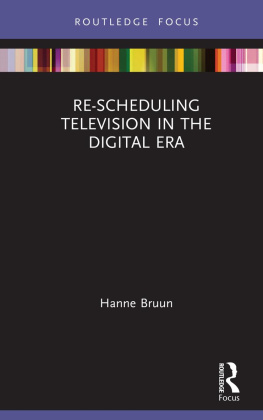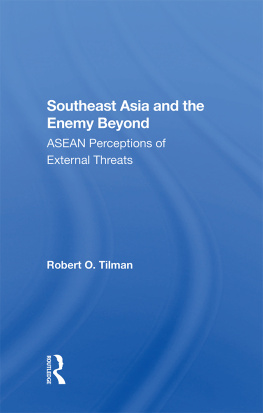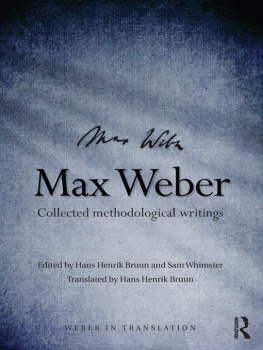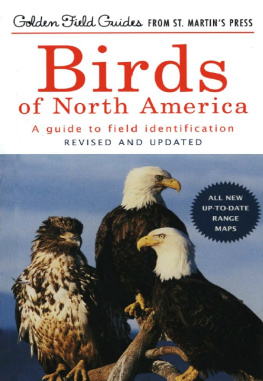ASIAN PERCEPTIONS OF NATURE
NORDIC INSTITUTE OF ASIAN STUDIES
Studies in Asian Topics
12. ISLAM: STATE AND SOCIETY
Klaus Ferdinand and Mehdi Mozaffari (Editors)
13. ASIAN TRADE ROUTES
Karl Reinhold Hllquist (Editor)
14. HUNTING AND FISHING IN A KAMMU VILLAGE
Damrong Tayanin and Kristina Lindell
15. RENEGOTIATING LOCAL VALUES
Merete Lie and Ragnhild Lund
16. LEADERSHIP ON JAVA
Hans Antlv and Sven Cederroth (Editors)
17. VIETNAM IN A CHANGING WORLD
Irene Nrlund, Vu Cao Dam and Carolyn Gates (Editors)
18. ASIAN PERCEPTIONS OF NATURE
Ole Bruun and Arne Kalland (Editors)
19. IMPERIAL POLICY AND SOUTHEAST ASIAN NATIONALISM, 19301957
Hans Antlv and Stein Tnnesson (Editors)
20. THE VILLAGE CONCEPT IN THE TRANSFORMATION OF RURAL SOUTHEAST ASIA
Mason C. Hoadley and Christer Gunnarsson (Editors)
21. IDENTITY IN ASIAN LITERATURE
Lisbeth Littrup (Editor)
ASIAN PERCEPTIONS OF NATURE
A CRITICAL APPROACH
edited by
Ole Bruun
and Arne Kalland
Nordic Institute of Asian Studies
Studies in Asian Topics, No. 18
First published 1995 by Curzon Press Ltd.
Published 2013 by Routledge
2 Park Square, Milton Park, Abingdon, Oxon OX14 4RN
711 Third Avenue, New York, NY, 10017, USA
Routledge is an imprint of the Taylor & Francis Group, an informa business
All rights reserved
Nordic Institute of Asian Studies 1995
While copyright as a whole is vested in the Nordic Institute of Asian Studies, copyright in the individual papers belongs to the authors.
No paper may be reproduced in whole or part without the express permission of author, publisher or editors.
British Library Catalogue in Publication Data
A CIP catalogue record for this book is available from the British Library
ISBN 13: 978-0-700-70301-2 (hbk)
ISBN 13: 978-0-700-70290-9 (pbk)
Contents
Ole Bruun and Arne Kalland
Jeya Kathirithamby-Wells
Peter Boomgaard
Stephen Sparkes
Graham E. Clarke
Are Knudsen
Birgitte Glavind Sperber
Klas Sandell
Ole Bruun
S. M. Eisenstadt
Brian Moeran and Lise Skov
Arne Kalland
Poul Pedersen
Illustrations
In the chapter, Japanese Advertising Nature, a number of advertisements are reproduced to illustrate the argument of the text. Every effort has been made to trace the copyright holders of these illustrations. Unfortunately, in some cases, this has proved to be impossible. The authors and publishers would be pleased to hear from any copyright holders they have been unable to contact and to print due acknowledgements in the next volume of the book.
Ole Bruun and Arne Kalland
An Introduction to the Study of ManEnvironment Relations in Asia
Growing concern for the natural environment has opened up a new field of inter-disciplinary studies of relations between man and nature. The ensuing intellectual debate has spread internationally and has nourished cross-cultural communication on environmental issues. The intentions behind this volume are implicitly to provide studies on specific topics related to Asian perceptions of nature and explicitly to provide a perspective on the cultural communication between Asia and the West in regard, to our natural environment.
In environmental studies it has commonly been assumed that there exists a fundamental connection between a societys management of natural resources and its perception of nature. For instance, ecological and environmental problems in the West have been accredited to the Judaeo-Christian cosmology of mans mastery of nature.1 Within this tradition, perhaps nobody has claimed mans mastery over nature more successfully than Descartes. One of the roots for the present deep concern for nature in the western world is apparently the growing awareness of the inadequacies of the Cartesian world-view, in which an intensified dichotomy of reality separated subject from object, culture from nature, and cultural sciences from natural sciences. More precisely, both sciences and popular ideologies have come to question the division between science for people (social sciences) and science for nature (Dickens 1992:3). With the challenged some would say crumbling western paradigms, an entirely new ecological paradigm is frequently called for (e.g. Dunlap and Catton 1980), a paradigm where man and environment no longer are seen as separate and opposite entities but where organisms and environment form part of one another (Dickens 1992:15).
Scientists and laymen alike have searched for new inspiration to correct these ills from outside western traditions. A large body of literature offers alternative world-views to the prevailing western ones: usually depicting man as an integral part of nature instead of being separated from it and trying to dominate it. They portray man and environment as a harmonious unity of mutual respect, complementarity and symbiosis; their views are holistic-organic rather than atomistic-mechanistic as in the industrial West (Callicott and Ames 1989:5).
The perceptions of nature found among indigeneous peoples and tribal societies have provided us with rich notions of alternatives. These are, however, commonly marketed in a specific ideological pursuit and thus entangled with a continuing critique of western culture. Native American beliefs and myths, for instance, have greatly inspired radical environmentalists; the founders of Greenpeace saw themselves as the Rainbow Warriors who, according to a Cree myth, would come to the Indians rescue and teach the white man reverence for the earth (Brown and May 1991:13).2
By the same token, Asian perceptions, particularly as they are articulated in Daoism, Buddhism and Hinduism, have been extensively used for similar purposes. In popular literature on ecology, allusions to Asian philosophies as a remedy for environmental ills are widespread. While natural scientists have repeatedly pointed to parallels between the new physics and biology, on the one hand, and eastern philosophies on the other, others from rebellious youths with only a rudimentary understanding of Oriental cultures to more sophisticated proponents of deep ecology have incorporated Asian ideas more or less critically into their world-views. An underlying assumption in much of this work is that Asian cosmologies have made Asian peoples more successful than others in taking care of nature, and Hargrove (1989) therefore laments that we have not given Asian perceptions the attention they deserve.
However, many anthropologists, geographers, sociologists and others doing fieldwork in Asia have noticed that Asian philosophies and cosmologies seem to have had little effect in preventing over exploitation of soils, over-grazing, erosion, deforestation, pollution of waters and other environmental disasters by which a number of Asian societies are acutely threatened. Nor can it be claimed that environmental degradation is a new phenomenon in Asia (cf. Simmons 1989; Totman 1989). It was against this background that we wanted to take a closer look at Asian attitudes to nature. The studies presented here address a series of issues related to perception of nature, attitudes to environmental change, and the use of natural metaphors across the Asian world. The collection of essays jointly promotes a more critical approach to the study of perceptions of nature in general. We wish to provide a new perspective to the myths of western dominance of nature; particularly, we wish to confront what has become established as the counter-myth of a prevailing Asian ecology-mindedness. However, it is beyond the scope of this collection of essay to analyse the processes behind the construction of such myths and their function in the western debate on man and environment. Nor is it our aim to depreciate Asian philosophy and thought; intellectual production in all parts of the world are valuable in redefining the manenvironment relation.








